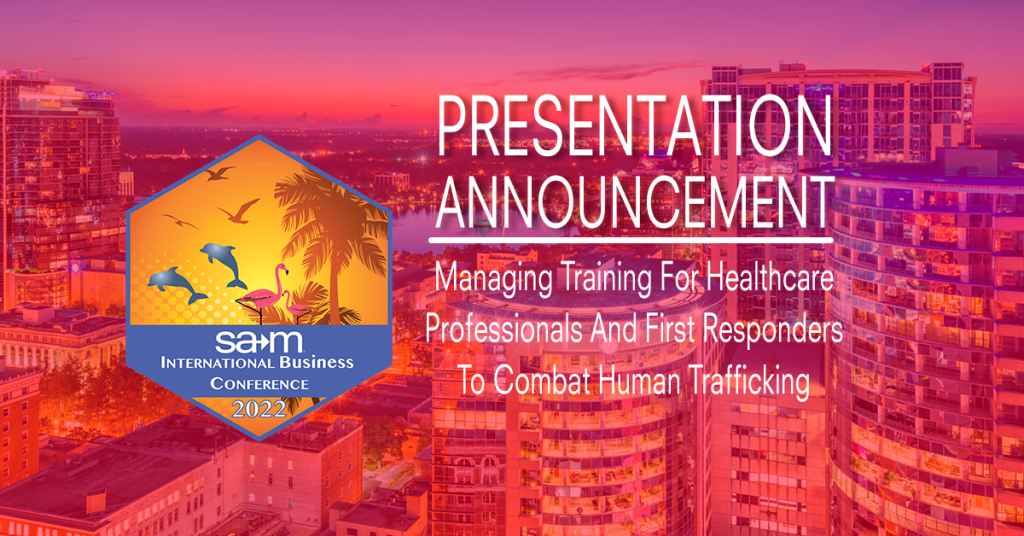
The programming committee for the 77th Annual SAM International Business Conference is pleased to announce the acceptance of the presentation Managing Training For Healthcare Professional And First Responders To Combat Human Trafficking by Shelby Perry and Henry Johnson of New England Institute of Technology.
Presentation Abstract: Human trafficking is a public health issue that affects individuals, their families, and communities across the United States. According to the Department of Homeland Security (2020), human trafficking is defined as “involving the use of force, fraud, or coercion to obtain some type of labor or commercial sex act” (What is Human Trafficking, 2020, p. 1). According to the American Public Health Association (2018), the health system plays an important role in identifying and treating victims of human trafficking.
Estimates show that approximately 80 percent of human trafficking victims are women, and health care providers are often the first professionals to have contact with trafficked women and girls (Brangoccio & Waugh, 2018). Health care providers play a unique role when identifying victims of trafficking and provide important physical and psychological care for victims while in captivity and after.
This study surveyed 167 healthcare professionals in and first responders in Rhode Island examining the format, quality, and delivery of human trafficking intervention training. Additionally, respondents were asked to complete selected portions of the Factor Influencing Training Transfer Survey (FITT). According to Bai, Li, Bai, Ma, Yang, and Ma (2018), “The FITT is a reliable and valid instrument for assessing the factors influencing training transfer among nursing professionals” (p.8).
This study results indicated that 64.1% of respondents indicated that they routinely see individuals who may display signs of being trafficked; Only 18.6% of respondents indicated that their employer offered them the opportunity to be trained in human trafficking and 82.2% (n = 45) of respondents who did attend a human trafficking training, found it to be beneficial for their professional development.
Out of the 167 participants, only 15 individuals responded affirmatively to pursuing human trafficking training on their own time, which indicates the need that institutions need to mandate comprehensive training.
Join us online to see this great paper and many more March 31 – April 2, 2022. For registration information visit www.samnational.org/conference.
